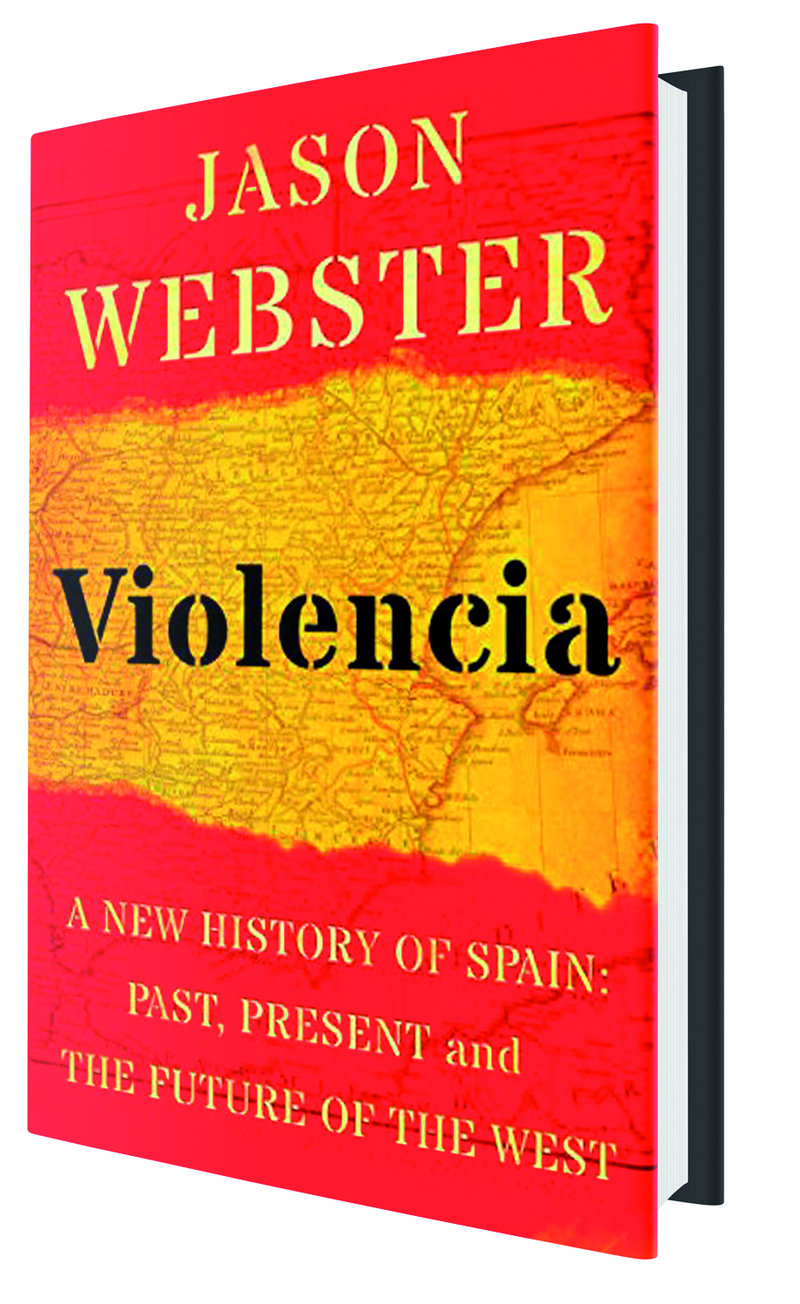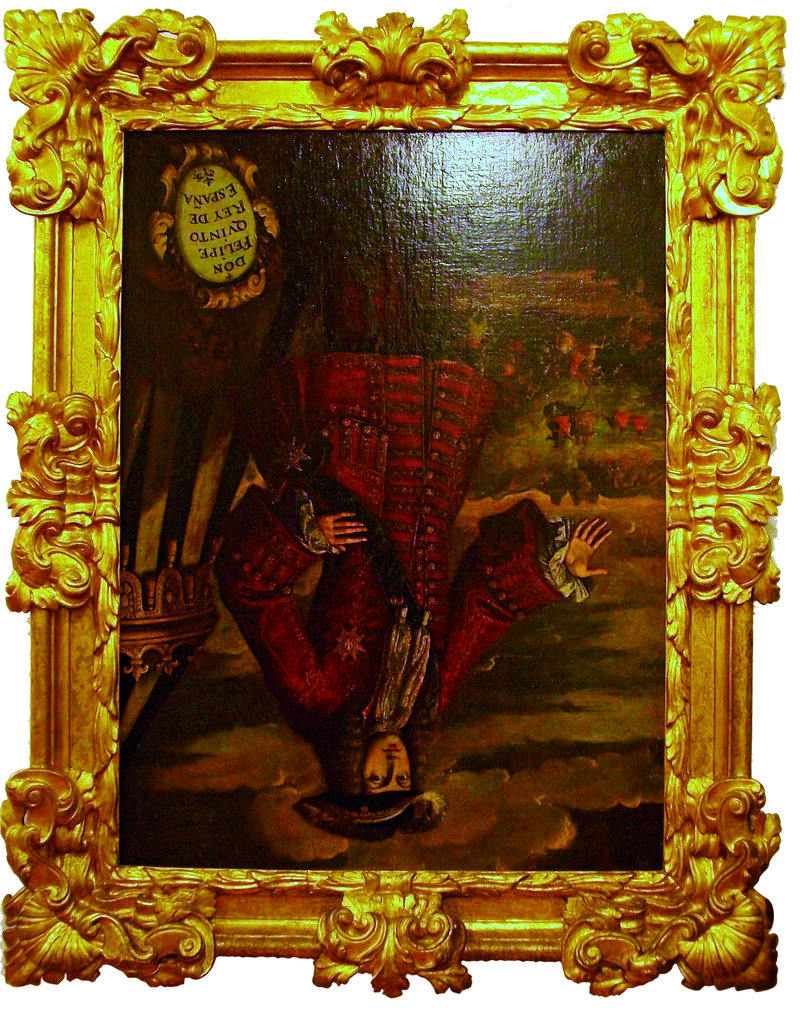Know the enemy
The Spanish title of this book written in English sums up an argument that Spain’s history is one of violent conflict. Surely not a surprise to Catalonia Today readers. We are well educated (or indoctrinated?) to understand that the Spanish state’s reaction when its unstable unity is threatened has historically been violent towards Catalonia
From the times of ‘pre-Spain’, as Webster calls one of his chapters, the peninsula’s history has been violent: invasions by Romans, Visigoths and Moors, warring Christian and Moorish kingdoms, expulsions of Jews and Moors and, in more modern times, civil wars and military coups. All this is undeniable: 1641, 1714, the Carlist wars, 1936-39…, but the argument is unconvincing, for violence may be intrinsic to Spain’s history, but it is not specific to Spain. Invasions and wars and, within all societies, class conflict (violence occurs as people rise up and the state drives them down) are central to the history of all countries.
What is more specific to Spain is the state’s inability to unify the country, unlike France with its centralised monarchy and then Jacobin Republic. This led to the Spanish state’s insecurity and weakness, making violence the favoured policy when dealing with Catalonia or Euskal Herria’s aspirations to independence. In 1700 the French state placed on the Spanish throne the Duc d’Anjou as Felipe V, but even his victory in the War of the Spanish Succession and subjugation of Catalonia failed to subdue those pesky separatists.
Predicting the future
Webster’s extravagant sub-title, A New History of Spain: Past, Present and the Future of the West, suggests a more precise theme. While Spain is often viewed in Northern Europe as a backward country, the contrary is true, argues Webster:
“Spain is a Cassandra, forever predicting the future of those around her…. On highly important issues, she is almost always in the lead: the Crusades, the European Renaissance, the Discovery of the Americas, Western imperialism, Liberalism, post-colonialism, the Second World War, the Cold War and the recent Occupy movement are all either driven by, presaged by, or built on, Spanish endeavour and experience.”
High and dizzying claims! Such a huge, generalising argument cannot be fully sustained, but its ambition enriches the book and forces readers (this reader, at least) to look at Spanish history anew. What would have happened to European medicine or culture if Arabian, Greek and Jewish learning had not first passed through Iberia into the rest of Europe? The great civilisation of the 10th century at Moorish Córdoba and the 12th-century School of Translators at Christian Toledo brought knowledge from the Eastern Mediterranean – from Athens, Damascus and Cairo – into Europe. Webster might well have added the work of Abbot Oliba and his team of translators at Ripoll in the 11th century.
Cassandra was the seer whose too-painful predictions were ignored. Webster’s book asks Europe to learn from what is happening in Spain, because it will hit the rest of Europe tomorrow. Spaniards, he argues, are often to blame for the negative views of their country, because it is a divided country always looking inwards and “locked in perpetual civil conflict”. And this is another theme of the book. Webster posits a divide between the two sides of St James, the apostle of Jesus who became Spain’s patron saint: Santiago the Slayer and Santiago the Seeker. Santiago is Matamoros, Moor-killer, who would appear in battle to slay the infidels. And he is also St James the pilgrim, the seeker after truth. One could say: fundamentalism or liberalism; Santiago Abascal or self-determination.
Fault Lines
I have learned a lot from Webster’s elegantly written, concise and factually rigorous book. He tends, perhaps, to place too much emphasis on the great names, Ziryab, Averroes, Alfonso the Wise, etc. Though indeed these are fascinating figures rescued from the half-forgotten past, “great men” alone do not move history. Webster does not examine the economic forces driving forward change.
Is history repeating itself today, as Webster suggests, when once again the fault lines of the 1930s that led to the Civil War have become visible, with the far right rising to combat Catalan separatism? The restricted democracy that emerged from the 1978 Constitution is in deep crisis. Will its institutional corruption and profoundly unjust economic system lead to another violent conflict? Nothing is inevitable, not even millennia-long patterns of history. It depends on us, on our collective struggle, to defeat Santiago Matamoros.
I have expressed disagreements in this review, but don’t doubt that Violencia is a quality book: original and daring in theme and written with panache. It is a must for anyone interested in Spain. And if the riposte is, we are in Catalonia not Spain, then buy it to know our opponent better. Jason Webster might add: buy it to know our future, for what happens in Spain presages the future of the West.
book review
Jason Webster: student of Spanish reality
Jason Webster has written a dozen books on Spain. Six are the Max Cámara detective novels, set mainly in Valencia, and a great introduction to that city. One of these, his 2015 A Body in Barcelona, features a terrorist attack in Barcelona organised by secret strata of the Spanish state in alliance with ultra-rightists nostalgic for Franco, in order to head off a Catalan Unilateral Declaration of Independence.
When Jason Webster thought up this plot, he could hardly have imagined the slaughter on the Rambles on August 17 2017 and the subsequent revelation of still unclarified connections between the main instigator of the attack, an Imam in Ripoll, and the Spanish secret service: unclarified, because Spanish governments have declined to undertake any formal investigation. Webster’s fiction eerily anticipated grim reality.
His other six books are non-fiction and varied: among them are Duende, on flamenco; Andalus, on Moorish Spain; The Spy with 29 Names, the fascinating story of Joan Pujol, the World War II double agent decorated by Britain and Germany; and Sacred Sierra, describing life on a hill-farm in the little-visited wild mountains inland from Castelló.
Webster is a scholar of Arabic and Islamic culture. In Andalus and Violencia, this expertise shows in his understanding of the 800-year Moorish presence in Spain, which is absent in the minds of most Spaniards. Though the Visigoths, invaders from the North, were in Iberia for only three centuries, they are often cited as modern Spain’s forerunners, though they left almost nothing behind them but Christianity. The Moors are always the ‘others’: the Islamic invaders finally expelled to Africa in the ‘Reconquest’. Yet their presence is everywhere: in names, in architecture, in customs, in language, in food, in people’s faces, etc.
All Webster’s books are written with verve and pace. He has a keen sense of history, of the Moorish legacy and of Spain’s diversity. What for me is his most fascinating book, Sacred Sierra, explores the remote Penyagolosa area. Unlike many picturesque accounts by foreigners settling in Spain, Sacred Sierra records local legends and traditions and the ageing farmers’ knowledge of plants and herbs, soon to be lost.




